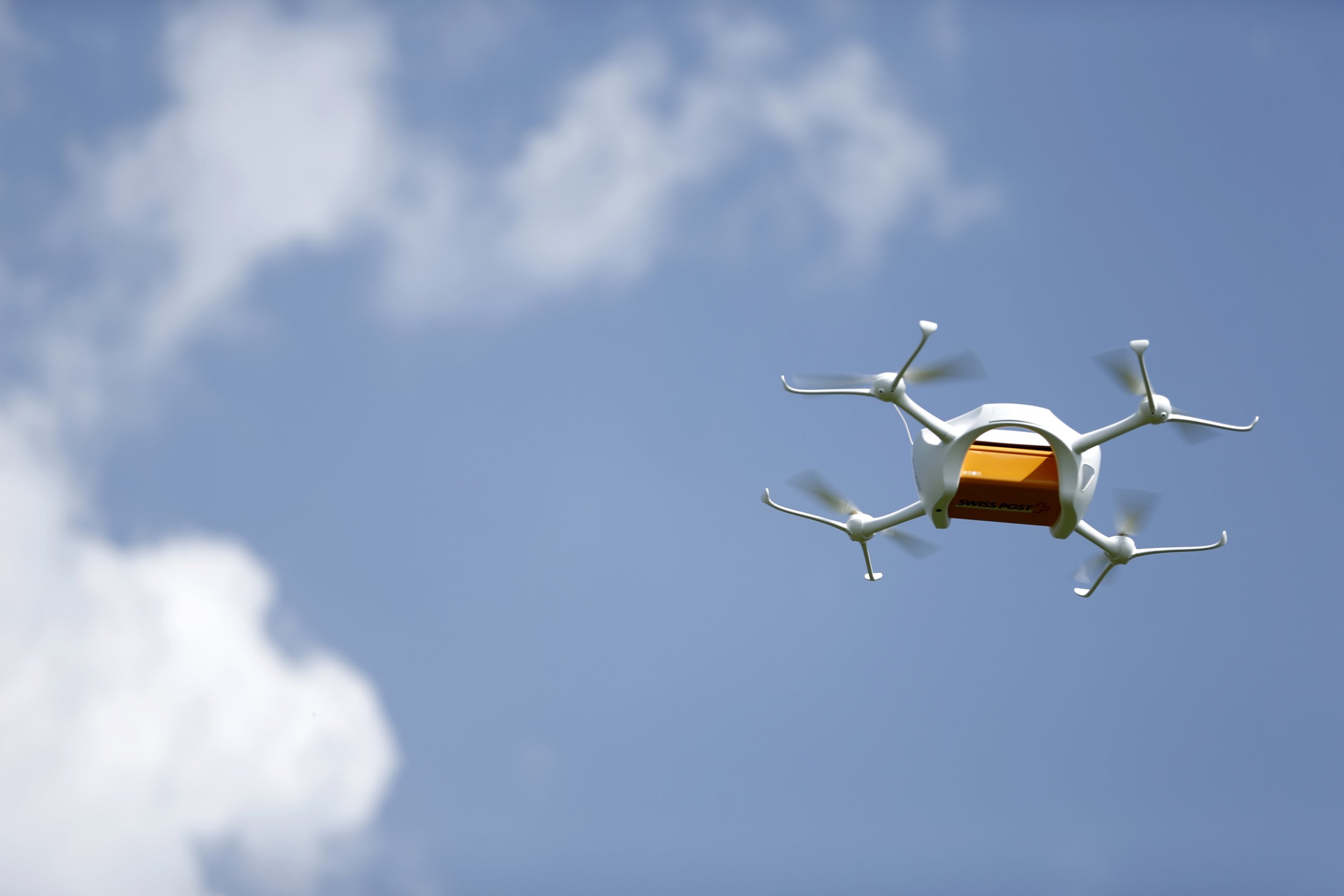
When Amazon founder Jeff Bezos announced on 60 Minutes in 2013 his ambition to one day deliver Amazon packages using drones, the drone industry was still in its nascent Wild West phase. As hobbyist drones rocketed in popularity, the federal government had no laws in place to control these new unmanned aircrafts from flying in public airspace. That changed only last week.
The Federal Aviation Administration unveiled its first set of comprehensive regulations targeted for drones. Called Part 107, the addition to the FAA's aviation regulations rulebook will go into effect in August. The rules allow businesses to freely operate drones—the FAA technically calls them unmanned aerial systems—as long as operators get a pilot certificate, but large-scale drone delivery systems still have not arrived. In fact, Part 107 hinders Bezos's delivery dream, as it prohibits drones from flying over people, out of the pilot's line of sight and during nighttime.
But Part 107 is not a snag, as some media outlets reported, according to aviation attorneys who spoke to Newsweek. With a legal framework in place, the FAA and Amazon (and Google, which is also pursuing drone delivery technology) can work faster to make new rules to accommodate package-delivery drones to fly in American cities as soon as the end of the decade. The attorneys feel confident that the political interest within the FAA and Congress, as well as the lobbying push from Amazon and Google, will make package-delivery drones come sooner than later.
"These are baby steps we're taking here," drone attorney Anne Swanson tells Newsweek. "I think we'll be there in less than five years."
Currently, both Amazon and Google test their drone technology outside the United States, in Canada and Australia respectively, because of previous frustrations with the FAA. Michael Drobac, a senior policy advisor for Akin Gump Strauss Hauer & Feld, says the U.S. has fallen behind other developed countries in accommodating drone technology due to FAA's reticence to take action. Drones are frequently used in small-scale deliveries for a myriad of businesses in Europe, from abortion pills in Northern Ireland to farm-to-table asparagus in the Netherlands.
In select industries, such as agriculture, clean energy and emergency response, the new regulations actually remove some barriers to drone use. Drones can be used to inspect wind turbines or to rescue people in disaster zones right away. When asked by Newsweek via email if Part 107 will allow or encourage Amazon and Google to start testing in the United States, the FAA simply rehashed the main regulations of Part 107.
Before Part 107, businesses that wished to use drones in any capacity needed the FAA to issue them a pass called a Section 333 exemption. Because the FAA received so many Section 333 exemptions requests the past few years, businesses regularly needed to wait between two months to a year. Thanks to Part 107, more than 6,000 Section 333 applications in wait will be cleared instantly, says Drobac. "It's much more than a baby step," says Drobac, whose employer has lobbied in Washington on behalf of Amazon's drone delivery efforts.
For Bezos's ambitions, there are two possibilities for the FAA to allow Amazon and Google to use drones to deliver goods. The more pragmatic way is for Congress to write a whole new set of drone regulations just for delivery purposes. The Senate in April hinted it may be on board, as it added provisions to create testing programs for package-delivery drones in its FAA reauthorization bill.
"We are going to need to see a complete re-envisioning of this law," Drobac says. "I think for almost all use cases, rulemaking by the FAA takes way too long. This can be an approach by Congress to tell what the future of the technology will be. I believe Congress will act soon."
The FAA also left the door open to working closely with Amazon and Google and handling the legality of drone delivery on a case-by-case basis. The FAA expressed it will be flexible with its Part 107 enforcement; it will allow drones to fly higher than the 400 feet limit if a drone is obstructed by a taller structure. The FAA also will allow companies to apply for Part 107 waivers, which can permit Amazon drones to bypass other regulations without needing to wait for a sweeping legislation from Congress.
But a few problems emerge with this method. One is scalability, as each Part 107 waiver applies for one pilot, not a whole company like Amazon, according to aviation attorney Jonathan Rupprecht. "Is Amazon going to need file a waiver for every pilot it has?" Rupprecht asks.
Another issue is that the waiver system is wholly untested because Part 107 has not rolled out yet. For example, Part 107 bans property being transported between states via drone—but will that rule apply in cities that exist on state borders like Kansas City or Washington? "I don't think even the FAA knows," Drobac says. "The very agency that has authority over this nascent technology is still grappling with it."
But Drobac insists this is a time for optimism for the future of drones in the United States. "People have told me these technologies will come in 10, 20 years, and I just think that's not true," Drobac says. "We are not years and years from ubiquitous drone delivery. We are much closer than that."
Uncommon Knowledge
Newsweek is committed to challenging conventional wisdom and finding connections in the search for common ground.
Newsweek is committed to challenging conventional wisdom and finding connections in the search for common ground.
About the writer
Seung Lee is a San Francisco-based staff writer at Newsweek, who focuses on consumer technology. He has previously worked at the ... Read more
To read how Newsweek uses AI as a newsroom tool, Click here.








